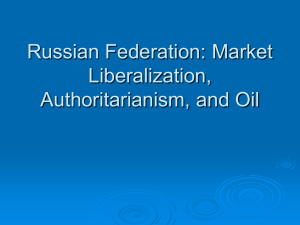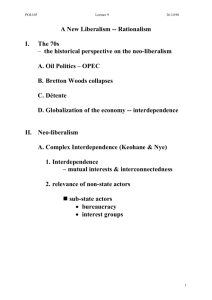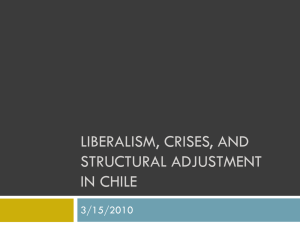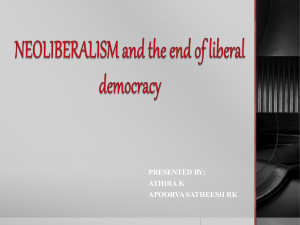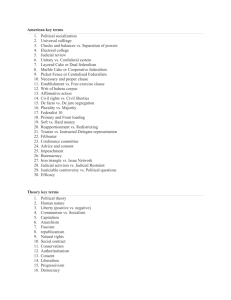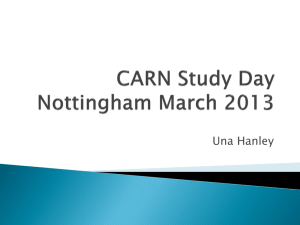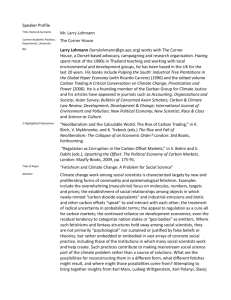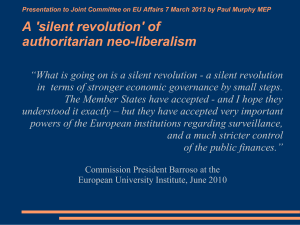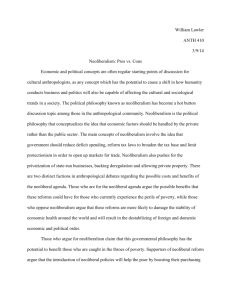What is Neoliberalism
advertisement
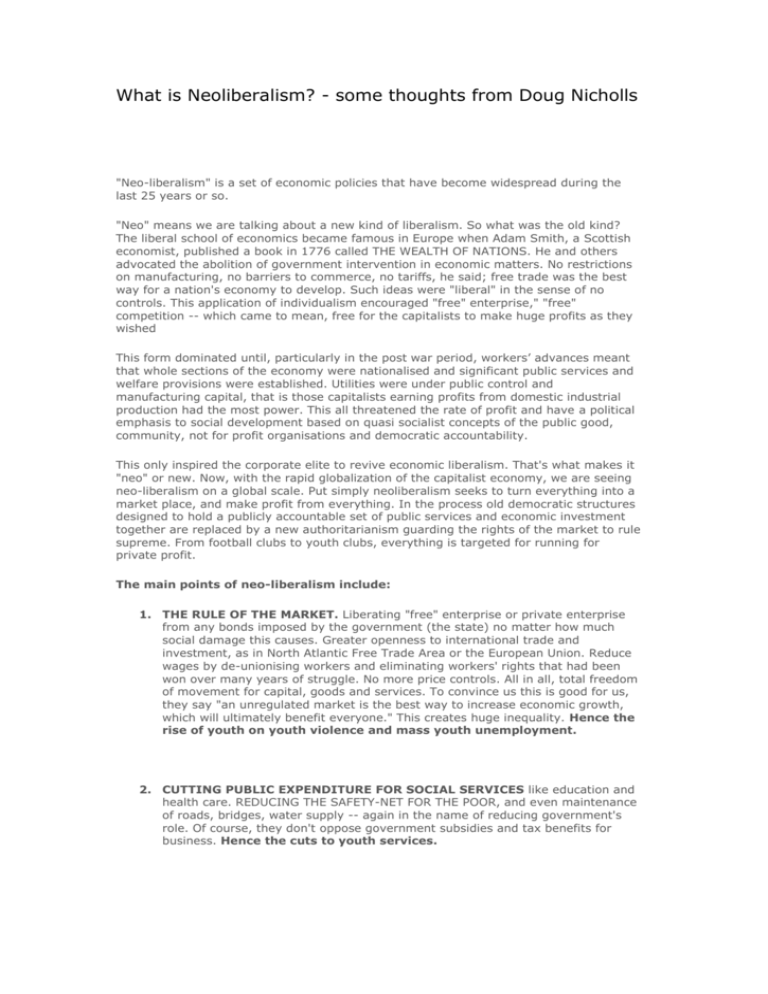
What is Neoliberalism? - some thoughts from Doug Nicholls "Neo-liberalism" is a set of economic policies that have become widespread during the last 25 years or so. "Neo" means we are talking about a new kind of liberalism. So what was the old kind? The liberal school of economics became famous in Europe when Adam Smith, a Scottish economist, published a book in 1776 called THE WEALTH OF NATIONS. He and others advocated the abolition of government intervention in economic matters. No restrictions on manufacturing, no barriers to commerce, no tariffs, he said; free trade was the best way for a nation's economy to develop. Such ideas were "liberal" in the sense of no controls. This application of individualism encouraged "free" enterprise," "free" competition -- which came to mean, free for the capitalists to make huge profits as they wished This form dominated until, particularly in the post war period, workers’ advances meant that whole sections of the economy were nationalised and significant public services and welfare provisions were established. Utilities were under public control and manufacturing capital, that is those capitalists earning profits from domestic industrial production had the most power. This all threatened the rate of profit and have a political emphasis to social development based on quasi socialist concepts of the public good, community, not for profit organisations and democratic accountability. This only inspired the corporate elite to revive economic liberalism. That's what makes it "neo" or new. Now, with the rapid globalization of the capitalist economy, we are seeing neo-liberalism on a global scale. Put simply neoliberalism seeks to turn everything into a market place, and make profit from everything. In the process old democratic structures designed to hold a publicly accountable set of public services and economic investment together are replaced by a new authoritarianism guarding the rights of the market to rule supreme. From football clubs to youth clubs, everything is targeted for running for private profit. The main points of neo-liberalism include: 1. THE RULE OF THE MARKET. Liberating "free" enterprise or private enterprise from any bonds imposed by the government (the state) no matter how much social damage this causes. Greater openness to international trade and investment, as in North Atlantic Free Trade Area or the European Union. Reduce wages by de-unionising workers and eliminating workers' rights that had been won over many years of struggle. No more price controls. All in all, total freedom of movement for capital, goods and services. To convince us this is good for us, they say "an unregulated market is the best way to increase economic growth, which will ultimately benefit everyone." This creates huge inequality. Hence the rise of youth on youth violence and mass youth unemployment. 2. CUTTING PUBLIC EXPENDITURE FOR SOCIAL SERVICES like education and health care. REDUCING THE SAFETY-NET FOR THE POOR, and even maintenance of roads, bridges, water supply -- again in the name of reducing government's role. Of course, they don't oppose government subsidies and tax benefits for business. Hence the cuts to youth services. 3. DEREGULATION. Reduce government regulation of everything that could diminish profits, including protecting the environment and safety on the job. Hence the attack on JNC terms and conditions and attempts to race to the bottom in wages. Hence also the government and employers rejection of a license to practice for youth workers. 4. PRIVATIZATION. Sell state-owned enterprises, goods and services to private investors. This includes banks, key industries, railways, electricity, gas, water, schools, hospitals. Although usually done in the name of greater efficiency, which is often needed, privatization has mainly had the effect of concentrating wealth even more in a few hands and making the public pay even more for its needs. Hence the commissioning out of youth services. 5. ELIMINATING THE CONCEPT OF "THE PUBLIC GOOD" or "COMMUNITY" and replacing it with "individual responsibility" or “choice” or the personalisation of services where individuals are given vouchers to spend on their own “choice” of services – like the failed Connexions card. Pressuring the poorest people in a society to find solutions to their lack of health care, education and social security all by themselves -- then blaming them, if they fail, as "lazy." Hence the demonisation of youth and hence also the attack generally on the value base of youth work and community work because they provide important bonds in the cohesion of community and collective responsibility within a democratic framework. 6. AUTHORITARIANISM, WAR MONGERING, THE CULTURE OF VIOLENCE the new political and economic order has led to the greatest erosions of trade union and civil liberities in recent years. Young people are treated almost universally as suspects and surveillance and punishment rather than support and prevention is dominant. The authoritarianism domestically is matched by consistent warmongering throughout the world. This renewed aggression is reflected in a culture based on competition and violence. Hence the targeting of the youth market by big corporations through fashion, computer gaming and diet. Many commentators have begun to argue that the worst victim of neoliberalism are young people. The consequences of the social decay it brings make all those who are non productive disposable commodities. Free market fundamentalism sees young people as commodities or irrelevant or threats to social order. Services and jobs designed to foster collective action and a sense of the public good, like health care, or youth and community work or teaching, are attacked in an attempt to break the trade union organisation and professional autonomy and value base of the workers directly involved.
